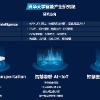Personal informatics research helps people track personal data for the purposes of self-reflection and gaining self-knowledge. This field, however, has predominantly focused on the data collection and insight-generation elements of self-tracking, with less attention paid to flexible data analysis. As a result, this inattention has led to inflexible analytic pipelines that do not reflect or support the diverse ways people want to engage with their data. This paper contributes a review of personal informatics and visualization research literature to expose a gap in our knowledge for designing flexible tools that assist people engaging with and analyzing personal data in personal contexts, what we call the personal informatics analysis gap. We explore this gap through a multistage longitudinal study on how asthmatics engage with personal air quality data, and we report how participants: were motivated by broad and diverse goals; exhibited patterns in the way they explored their data; engaged with their data in playful ways; discovered new insights through serendipitous exploration; and were reluctant to use analysis tools on their own. These results present new opportunities for visual analysis research and suggest the need for fundamental shifts in how and what we design when supporting personal data analysis.
翻译:个人信息研究有助于人们为自我反省和获得自我知识的目的跟踪个人数据。然而,这个领域主要侧重于数据收集和自我跟踪的洞察力生成要素,较少注意灵活的数据分析。结果,这种不注意导致不灵活解析管道,不反映或支持人们想要以不同方式接触其数据。本文件对个人信息学和视觉化研究文献进行审查,以揭示我们的知识差距,用于设计灵活工具,协助个人参与和分析个人数据,我们称之为个人信息分析差距。我们通过多阶段纵向研究探索这一差距,研究哮喘学如何与个人空气质量数据互动,我们报告参与者如何:广泛和不同目标的驱动力;在探索数据时展示模式;以玩世不恭的方式接触数据;通过偶然探索发现新的洞察力;不愿使用自己的分析工具。这些结果为视觉分析研究提供了新的机会,并表明在支持个人数据分析时,我们需要如何和什么进行根本性的转变。





